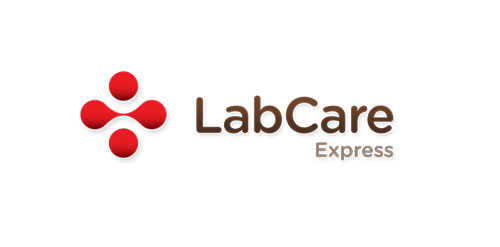Description

Dicatalyst

LabCare Express

QATrax
Comprehensive Overview: Dicatalyst vs LabCare Express vs QATrax
As of my last update, detailed specific information about Dicatalyst, LabCare Express, and QATrax may not be readily available, especially if these are niche or less-publicly discussed products. However, I can provide a general way of approaching these types of products based on common industry trends and typical characteristics of software systems in similar categories. If these are proprietary or very recent solutions, I recommend checking the companies' official websites or industry publications for the most accurate and up-to-date information. Here's a general breakdown:
a) Primary Functions and Target Markets
Dicatalyst
- Primary Functions: Dicatalyst, if aligned with typical catalyst or laboratory management tools, likely focuses on data collection, analysis, and possibly the automation of chemical processes. It could be used for project management within lab environments, focusing on efficiency and integration of systems.
- Target Markets: Potentially targets chemical labs, manufacturers needing catalyst management, or pharmaceutical companies interested in optimizing laboratory functions.
LabCare Express
- Primary Functions: This is probably a Laboratory Information Management System (LIMS) designed to streamline lab operations, manage samples, inventory, and possibly ensure compliance with industry standards.
- Target Markets: Target markets would include clinical laboratories, research institutions, diagnostic labs, and industrial labs where tracking and managing large volumes of samples and data are essential.
QATrax
- Primary Functions: Likely a Quality Assurance and Test Tracking system that helps manage test processes and quality assurance workflows. It could provide a framework for scheduling, tracking, and reporting on testing activities.
- Target Markets: Electronics or automotive industries, research and development labs, or any organization where rigorous testing and QA processes are critical.
b) Market Share and User Base
- Market Share: Typically, LIMS and QA software have a fragmented market with various specialized tools. The market share would depend on regional dominance, industry preference, and the level of integration and scalability offered by the tool.
- User Base: User base sizes can vary significantly. If Dicatalyst, LabCare Express, and QATrax are industry standards or well-integrated in specific sectors, their user base could be substantial. However, they might serve niche markets if they offer specialized functions.
c) Key Differentiating Factors
-
Functionality:
- Dicatalyst might differentiate itself with advanced automation and integration capabilities tailored to chemical processes.
- LabCare Express could stand out with a user-friendly interface, robust compliance management, and strong sample tracking capabilities.
- QATrax might offer specialized testing schedules and enhanced reporting tools tailored for high compliance environments.
-
Scalability:
- The ease with which these products integrate into existing infrastructure and scale with a growing organization could be a significant differentiator.
-
User Interface:
- Ease of use and user experience can significantly impact adoption rates; each product might differ in how intuitive their interfaces are.
-
Integration Capabilities:
- How easily these tools integrate with existing enterprise systems (ERP/CRM) and other lab equipment/software might be a deciding factor.
-
Cost:
- Pricing models could vary widely, from subscription SaaS models to perpetual licensing, impacting the choice for different sizes of labs or businesses.
For accurate and current data, I recommend consulting recent IT and lab management software market research reports, user reviews on platforms like Capterra or G2, and direct sources from the companies themselves.
Contact Info

Year founded :
2017
Not Available
Not Available
India
http://www.linkedin.com/company/dicatalyst

Year founded :
Not Available
Not Available
Not Available
Not Available
Not Available

Year founded :
Not Available
Not Available
Not Available
Not Available
Not Available
Feature Similarity Breakdown: Dicatalyst, LabCare Express, QATrax
When comparing Dicatalyst, LabCare Express, and QATrax, all of which are solutions used in laboratory and testing environments, a detailed feature similarity breakdown can be quite insightful. Here is an overview:
a) Common Core Features
-
Inventory Management:
- All three platforms likely offer comprehensive inventory management features. This includes tracking lab materials, reagents, and equipment availability.
-
Data Management and Reporting:
- They provide tools for handling large volumes of lab data and generating detailed reports, crucial for compliance and operational efficiency.
-
Scheduling and Workflow Automation:
- Each solution usually offers capabilities for automating test scheduling, lab workflow processes, and resource allocation to enhance productivity and reduce downtime.
-
Compliance and Quality Assurance:
- Built-in compliance management features ensure adherence to industry standards and regulations such as ISO 17025, which are common requirements for laboratory operations.
-
User Permissions and Access Control:
- Role-based access control to ensure secure data handling and operation, allowing different levels of access for technicians, managers, and administrators.
b) User Interface Comparison
-
Dicatalyst:
- Dicatalyst generally has a modern, intuitive interface with a focus on user experience, providing an easy-to-navigate dashboard that highlights key metrics and operations.
-
LabCare Express:
- Known for its straightforward, efficient user interface designed to cater to ease of use for lab technicians. It might offer more grid or list-like views which can be beneficial for quick data reviews.
-
QATrax:
- QATrax typically emphasizes customization and flexibility, allowing users to tailor the interface to suit specific testing requirements or reporting standards. The UI may lean towards a more detailed or technical style compared to the other two.
c) Unique Features
-
Dicatalyst:
- Dicatalyst might offer advanced AI-driven analytics that offer predictive insights, which could set it apart for labs looking to implement more sophisticated data analysis.
-
LabCare Express:
- May include features specifically tailored for multi-site laboratory operations, providing robust connectivity and coordination among different lab locations, which can be a unique advantage for large organizations.
-
QATrax:
- Known for its strong focus on test lab automation systems, QATrax may provide specialized features such as custom test plan management and dynamic scheduling that are particularly beneficial for R&D or quality testing labs.
Each of these solutions would have its strengths and could cater to specific needs depending on the lab’s size, type, and operational focus. Users may need to evaluate these based on their unique requirements in workflow, data handling, and integration capabilities.
Features

Not Available

Not Available

Not Available
Best Fit Use Cases: Dicatalyst, LabCare Express, QATrax
To provide a detailed response, let's consider each of these products—Dicatalyst, LabCare Express, and QATrax—in terms of their typical use cases, preferred scenarios, and suitability across different industries and company sizes.
Dicatalyst
a) Best Fit Use Cases:
- Types of Businesses or Projects: Dicatalyst is often ideal for businesses focusing on digital transformation, data management, and project collaboration tools. It is particularly well-suited for mid-sized to large enterprises that require robust project management capabilities and efficient data handling.
- Industry Verticals: It caters well to IT services, consulting firms, and industries that rely heavily on remote collaboration and digital project management, such as marketing agencies or software development companies.
d) Catering to Industry Verticals or Company Sizes:
- Dicatalyst is built to handle the complexity and scalability required by larger enterprises while remaining accessible to mid-sized companies looking to enhance their digital infrastructure and collaborative efforts.
LabCare Express
b) Preferred Scenarios:
- Scenarios: LabCare Express is designed for healthcare environments, specifically laboratories that need streamlined operations for testing, data management, and sample tracking. It's the preferred choice for labs that seek to optimize workflow and enhance efficiency.
- Industry Verticals: It is quintessentially aligned with healthcare providers, diagnostic labs, and biomedical research facilities due to its focus on lab-specific workflows.
d) Catering to Industry Verticals or Company Sizes:
- LabCare Express caters predominantly to small and medium-sized labs but can scale to accommodate larger facilities. Its targeted suite of features is particularly useful in industry verticals where compliance, accuracy, and speed are crucial.
QATrax
c) When to Consider Over Others:
- User Consideration: QATrax is optimal for quality assurance and testing environments, providing extensive scheduling and tracking capabilities for test labs and quality control departments.
- Scenarios: It is usually the preferred option for industries requiring rigorous testing protocols, such as automotive, aerospace, and electronics manufacturing sectors.
d) Catering to Industry Verticals or Company Sizes:
- QATrax is effective for both medium-sized and large enterprises. Its comprehensive test management functionalities are highly valued in industries with stringent quality assurance processes and those that must adhere to rigorous regulatory standards.
Summary
Each of these products serves distinct needs within different industry verticals. Dicatalyst is tailored for digital transformation and project management across diverse sectors but particularly tech-oriented businesses. LabCare Express is specialized for the healthcare industry, providing laboratory-specific functionalities. QATrax is excellent for quality assurance and testing, particularly in sectors with demanding testing requirements. Their ability to cater to various company sizes ensures they can support the growth and scalability needs of their target industries.
Pricing

Pricing Not Available

Pricing Not Available

Pricing Not Available
Metrics History
Metrics History
Comparing teamSize across companies
Conclusion & Final Verdict: Dicatalyst vs LabCare Express vs QATrax
To conclude which product among Dicatalyst, LabCare Express, and QATrax offers the best overall value, let's analyze each based on their pros and cons, and provide specific recommendations:
Dicatalyst
Pros:
- Advanced Features: Dicatalyst is known for offering cutting-edge features that streamline laboratory management and data tracking.
- Customization: Provides extensive customization options tailored to specific laboratory needs, making it versatile for various industries.
- User-Friendly Interface: Intuitive and easy to use, which can reduce the learning curve for new users.
Cons:
- Cost: Tends to be more expensive than some competitors, which might be a concern for smaller labs with limited budgets.
- Complexity: The extensive features can be overwhelming for users who require a straightforward, simple solution.
LabCare Express
Pros:
- Affordability: Generally more budget-friendly, appealing to smaller labs or those with constrained financial resources.
- Comprehensive Support: Offers robust customer support services, aiding users during the implementation and regular use.
- Ease of Use: Simplified user interface and core functionality make it accessible to most labs without extensive training.
Cons:
- Limited Advanced Capabilities: May lack some high-end features that larger labs or those needing extensive data analytics might require.
- Scalability: Might not support growth for labs looking to expand or integrate more complex operations in the future.
QATrax
Pros:
- Specialized for Testing: Specifically designed for test labs, offering tailored modules for test management and reporting.
- Integration Capabilities: Strong integration options with existing lab equipment and systems, which can streamline operations.
- Reliability: Known for its stability and robust performance under heavy data loads.
Cons:
- Niche Application: Its specialization means it might not be the best fit for labs outside the testing domain.
- Initial Setup: The setup and transition process can be more intensive, requiring significant time and resources.
Final Verdict and Recommendations:
Best Overall Value: Considering all factors, LabCare Express offers the best overall value for general laboratory needs, especially for small to medium-sized labs focused on affordability and ease of use. Its combination of cost-effectiveness and user-friendliness ensures a wide appeal.
Specific Recommendations:
- For Small Labs on a Budget: LabCare Express is recommended due to its affordability and support structure.
- For Large Labs Needing Advanced Features: Dicatalyst is suitable, provided the budget allows, given its extensive customization and advanced functionalities.
- For Specialized Test Labs: QATrax should be the product of choice due to its specialized features tailored for testing environments.
Ultimately, the choice depends on the specific needs of the laboratory, budget constraints, and the desired level of complexity and scalability. Users should carefully evaluate their current and future requirements in line with these considerations.